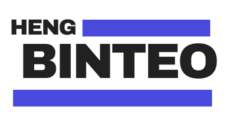In today’s digital age, online advertising has become a cornerstone of marketing strategies for businesses of all sizes. Among the various online advertising platforms available, Google Ads stands out as one of the most powerful and versatile tools. However, to harness its full potential, effective Google Ads management is essential.

Understanding Google Ads
Google Ads, formerly known as Google AdWords, is an advertising platform that allows businesses to display their ads on Google’s search results pages and across the Google Display Network. It operates on a pay-per-click (PPC) model, meaning advertisers only pay when someone clicks on their ad.
Benefits of Effective Google Ads Management
Effective Google Ads management can yield a plethora of benefits for businesses:
- Increased Visibility: Well-managed campaigns can boost your website’s visibility in search results, making it easier for potential customers to find you.
- Higher ROI: Optimized campaigns can generate a higher return on investment (ROI), ensuring that your advertising dollars are well-spent.
- Improved Conversions: A well-crafted ad campaign can lead to increased conversions, whether that means sales, leads, or other desired actions.
- Targeted Reach: Google Ads allows you to target specific demographics, locations, and interests, ensuring that your ads reach the right audience.
- Real-time Performance Tracking: Google Ads provides robust tracking and analytics tools, enabling you to monitor campaign performance in real time.
Key Components of Google Ads Management
Keyword Research and Selection
Keyword research is the foundation of any successful Google Ads campaign. It involves identifying the keywords and phrases that potential customers are likely to search for. Selecting the right keywords ensures that your ads are displayed to the most relevant audience.
Ad Copy Optimization
Compelling ad copy is crucial for capturing the attention of your audience and encouraging them to click on your ads. Effective ad copywriting involves crafting persuasive and relevant messages that resonate with your target audience.
Bid Management
Bid management is the process of setting and adjusting your bid amounts to compete in Google’s ad auction effectively. Finding the right balance between bidding too high or too low is key to maximizing ROI.
Ad Extensions
Ad extensions enhance your ads by providing additional information and opportunities for users to engage. Utilizing ad extensions such as site link extensions, callout extensions, and location extensions can improve the performance of your ads.
Tracking and Analytics
To measure the success of your Google Ads campaigns, it’s essential to track and analyze key metrics like click-through rate (CTR), cost-per-click (CPC), and conversion rates. These insights help you make data-driven decisions and refine your campaign strategies.
A/B Testing and Optimization
A/B testing involves creating variations of your ads and landing pages to determine which performs better. Continuous optimization based on test results can lead to significant improvements in campaign performance.
Budget Management
Setting a realistic budget and managing it effectively is crucial in Google Ads. Allocating your budget wisely to high-performing keywords and campaigns can maximize your advertising ROI.
Competitor Analysis
Keeping an eye on your competitors’ ad strategies can provide valuable insights. Tools and techniques for competitor analysis can help you stay ahead in the advertising game.
Ad Quality and Landing Pages
The quality of your ads and the relevance of your landing pages play a vital role in Google Ads. Ensuring that your ads and landing pages align with user intent is essential for high-quality scores and better ad placements.
Ad Schedule and Targeting
Optimizing ad scheduling and targeting allows you to show your ads at the times and to the audience segments that are most likely to convert. Dayparting and demographic targeting can be powerful tools.
Ad Rank and Quality Score
Understanding ad rank and quality score is fundamental to achieving better ad positions at lower costs. Improving ad quality and relevance can positively impact your ad rank and quality score.
Mobile Optimization
With the increasing use of mobile devices, optimizing your ads for mobile is a must. Mobile-friendly ads and landing pages can enhance the user experience and boost conversions.
Remarketing and Retargeting
Remarketing and retargeting strategies aim to bring back visitors who have previously interacted with your website or ads. These tactics can help re-engage potential customers and lead to conversions.
Ad Campaign Mistakes to Avoid
While effective Google Ads management can yield substantial benefits, there are common mistakes that businesses should avoid. These include neglecting proper keyword research, ignoring ad quality, and mismanaging budgets. Awareness of these pitfalls can help you steer clear of costly errors.
Conclusion
Effective Google Ads management is a multifaceted endeavor that requires a deep understanding of the platform’s features and a commitment to ongoing optimization. By focusing on key components such as keyword research, ad copy optimization, bid management, and tracking, businesses can boost their ROI and conversions significantly. Remember that Google Ads is a dynamic advertising platform, and staying informed about industry trends and best practices is essential for long-term success.
